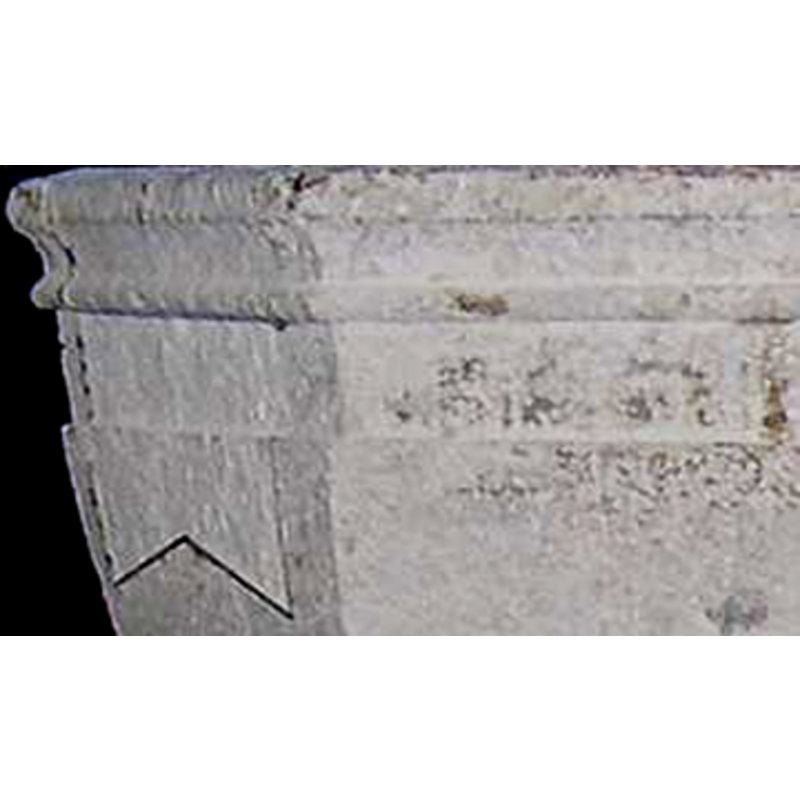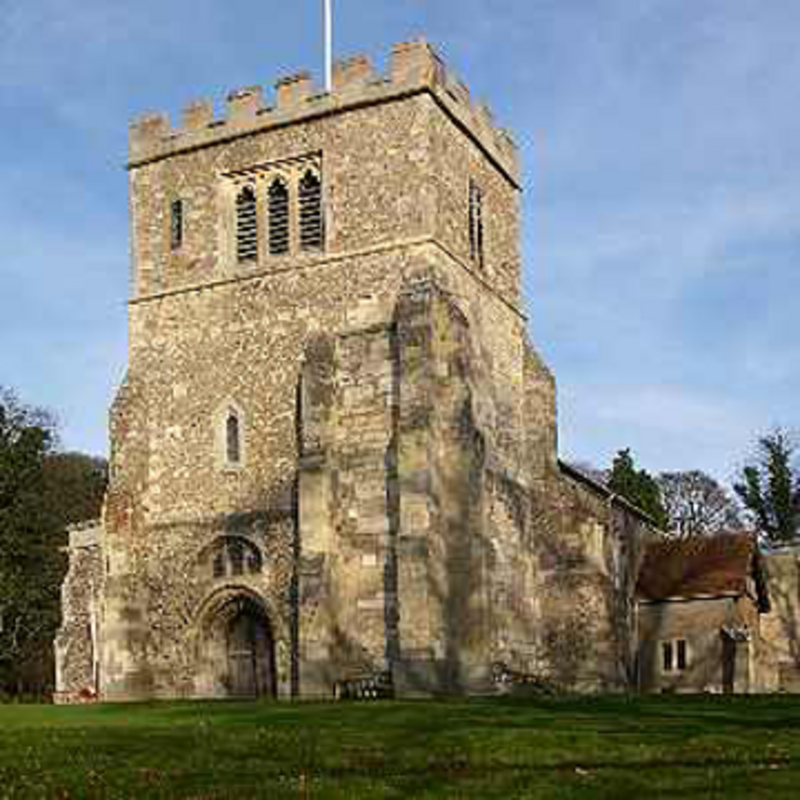Great Missenden / Missenden Magna / Missedene / Mussenden

Image copyright © Ken Goodearl, 2007
Permission received (email of 29 Oct 2007)
Results: 5 records
view of font and cover
Copyright Statement: Image copyright © Ken Goodearl, 2007
Image Source: digital photograph by Ken Goodearl, 2007 [http://www.petergoodearl.co.uk/ken/aylesburyfonts/aylesburyfont_pics.htm#aylesbury] [accessed 31 October 2007]
Copyright Instructions: Permission received (email of 29 Oct 2007)
view of basin - detail
Copyright Statement: Image copyright © Ken Goodearl, 2007
Image Source: digital photograph by Ken Goodearl, 2007 [http://www.petergoodearl.co.uk/ken/aylesburyfonts/aylesburyfont_pics.htm#aylesbury] [accessed 31 October 2007]
Copyright Instructions: Permission received (email of 29 Oct 2007)
view of church exterior - west view
Copyright Statement: Image copyright © Ken Goodearl, 2007
Image Source: digital photograph by Ken Goodearl, 2007 [http://www.petergoodearl.co.uk/ken/aylesburyfonts/aylesburyfont_pics.htm#aylesbury] [accessed 31 October 2007]
Copyright Instructions: Permission received (email of 29 Oct 2007)
design element - motifs - vine
Scene Description: [cf. Font notes]
Copyright Statement: Image copyright © Ken Goodearl, 2007
Image Source: digital photograph by Ken Goodearl, 2007 [http://www.petergoodearl.co.uk/ken/aylesburyfonts/aylesburyfont_pics.htm#aylesbury] [accessed 31 October 2007]
Copyright Instructions: Permission received (email of 29 Oct 2007)
view of font and cover in context
Copyright Statement: Image copyright © Martin Beek, 2005
Image Source: digital photograph in FLICKR [www.flickr.com/photos/oxfordshire_church_photos] taken by Martin Beek on 29 May 2005
Copyright Instructions: PERMISSION NOT AVAILABLE -- IMAGE NOT FOR PUBLIC USE
INFORMATION
Font ID: 09945MIS
Object Type: Baptismal Font1
Font Century and Period/Style: 12th - 13th century [base only?] [re-cut], Medieval / composite
Workshop/Group/Artisan: Aylesbury group
Cognate Fonts: Aylesbury, Bedlow, Great Kimble, Weston Turville, etc.
Church / Chapel Name: Parish Church of St. Peter and St. Paul
Font Location in Church: Inside the church, in the W end of the nave
Church Patron Saint(s): St. Peter & St. Paul
Church Address: Church Lane, Great Missenden, Buckinghamshire, HP16 0QR
Site Location: Buckinghamshire, South East, England, United Kingdom
Directions to Site: Located on the A413, adjacent to Little Missenden and Prestwood, 10-12 km SE of Aylesbury
Ecclesiastic Region: Diocese of Oxford
Historical Region: Hundred of Aylesbury
Additional Comments: altered font / restored font / composite font : only the lower base is original -- or was it totally re-cut? [cf. FontNotes]
Font Notes:
Click to view
There is an entry for [Great] Missenden [variant spelling] in the Domesday survey [http://opendomesday.org/place/SP8901/great-missenden/] [accessed 30 September 2015], but it mentions neither cleric nor church in it. Sheahan (1862) notes: "The font is of composition, with the cable moulding." The Victoria County History (Buckingham, vol. 2, 1908) notes: "The patronage of the church of St. Peter and St. Paul at Great Missenden belonged to the lord of that manor until it was given with its tithes by William de Missenden to the abbey, which he founded there in 1133. [...] The church was largely rebuilt in the first half of the 14th century [...] The font is of the type so common in this neighbourhood, the finest example of which is perhaps that at Aylesbury. It is of late 12th-century date and has an octagonal bowl on a short circular moulded stem worked into a square base shaped like an inverted cushion capital." Described in the RCAHM (Buckinghamshire, 1912- ): "Font: of the 'Aylesbury' type, of clunch, octagonal bol with rounded sides, stem with roll and chevron moulding, square base with inverted scallops, the semcircular sunk panels at sides richly carved, late 12th-century, re-cut to prsent shape in the 15th or 16th century." Noted in Pevsner (1960): "Font. With a Norman base in the form of a reversed one-scallop capital with decorated lunettes and a rope moulding." Listed in Stockner (1997) as a 12th-century baptismal font of the Aylesbury group. A report from the Society for Church Archaeology [www.missendenchurch.org.uk/archeol.htm] informs that a "fragment of the original 12th century font bowl from this church" was found in the church boiler room, and that "the present bowl is a poor quality replacement. In its original state it would have been very similar to a font in Bedlow church". The restored font has an octagonal basin with plain chamfered underbowl and a thick braided moulding as centre ring, all of it of a later date; it is raised on a cushion-capital base, which is the only original survival of the old font [NB: the chamfering of the angles is not common in the Aylesbury fonts]. The RCAHM (ibid.) further notes a holy-water stoup in the north aisle, by the north doorway, "with pointed head, half basin destroyed, probably 15th-century"; another stoup, in the south aisle,, by the south doorway, "small, with cinquefoil head and chamfered jambs, 15th-century".
Credit and Acknowledgements: We are grateful to Ken Goodearl, of www.petergoodearl.co.uk/ken/aylesburyfonts/aylesburyfont_pics.htm#aylesbury, for his photographs of this church and font].
COORDINATES
UTM: 30U 659052 5730089
Latitude & Longitude (Decimal): 51.699181, -0.698412
Latitude & Longitude (DMS): 51° 41′ 57.05″ N, 0° 41′ 54.28″ W
MEDIUM AND MEASUREMENTS
Material: stone, limestone? [clunch]
Font Shape: chalice-shaped, octagonal, mounted
Basin Interior Shape: round
Basin Exterior Shape: octagonal
LID INFORMATION
Date: modern
Material: wood
Apparatus: no
Notes: octagonal, modern
REFERENCES
- Victoria County History [online], University of London, 1993-. URL: https://www.british-history.ac.uk.
- Great Britain. Royal Commission on Historical Monuments (England), An inventory of the historical monuments in Buckinghamshire, London: H.M. Stationary Office, 1912-, vol. 1: 172
- Pevsner, Nikolaus, Buckinghamshire, Harmondsworth: Penguin, 1960, p. 146
- Sheahan, James Joseph, History and topography of Buckinghamshire, comprising a general survey of the county, preceded by an epitome of the early history of Great Britain, London; Pontefract: Longman, Green, Longman, and Roberts; William Edward Bonas [...], 1862, p. 178
- Stocker, D.A., "Fons et origo: The Symbolic Death and Resurrection of English Font Stones", I (1997b), Church Archaeology, 1997, pp. 17-25; p. 20ff


![[cf. Font notes]](/static-50478a99ec6f36a15d6234548c59f63da52304e5/compressed/1071101004_compressed.png)
